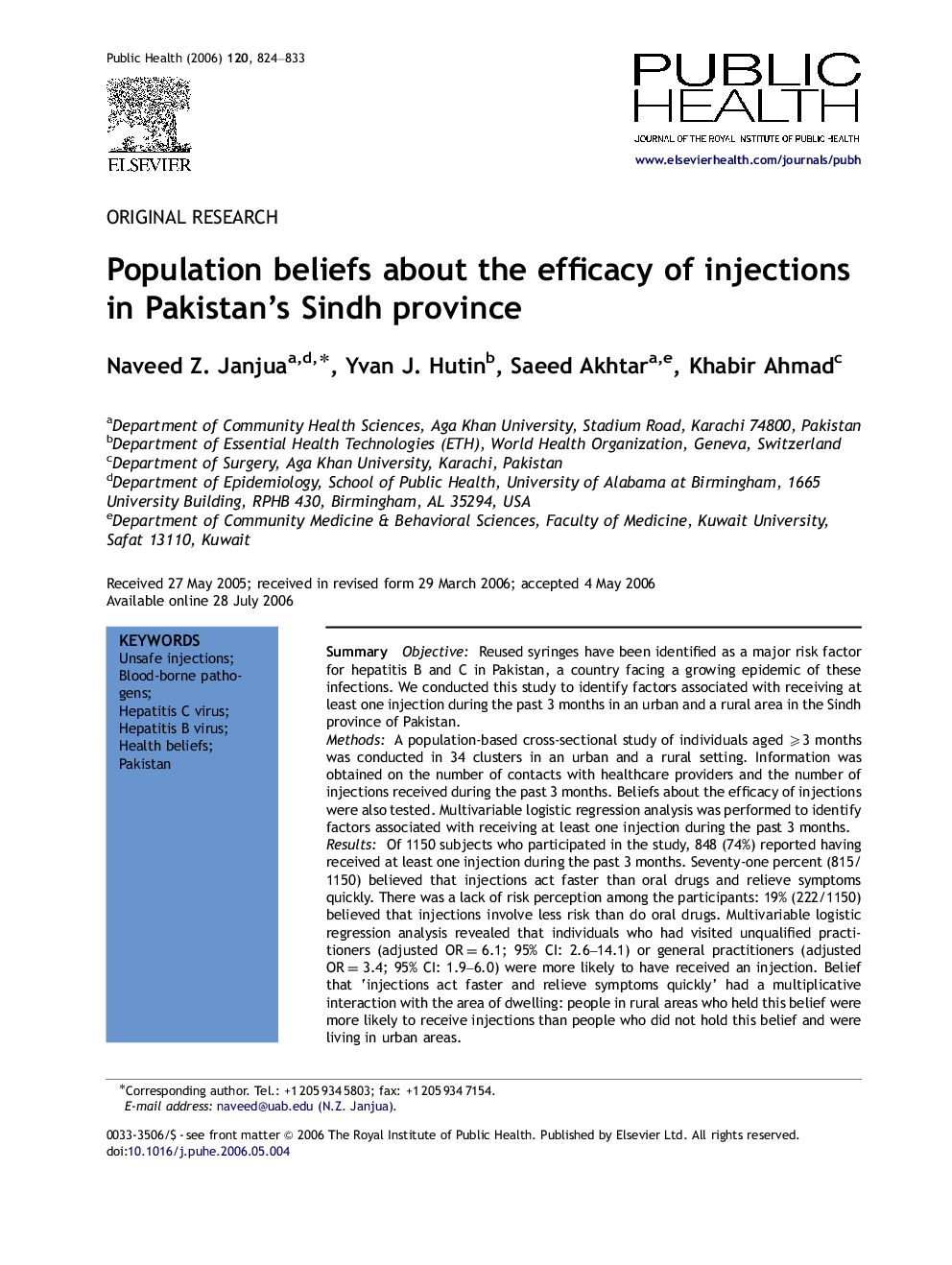| کد مقاله | کد نشریه | سال انتشار | مقاله انگلیسی | نسخه تمام متن |
|---|---|---|---|---|
| 1088857 | 951612 | 2006 | 10 صفحه PDF | دانلود رایگان |

SummaryObjectiveReused syringes have been identified as a major risk factor for hepatitis B and C in Pakistan, a country facing a growing epidemic of these infections. We conducted this study to identify factors associated with receiving at least one injection during the past 3 months in an urban and a rural area in the Sindh province of Pakistan.MethodsA population-based cross-sectional study of individuals aged ⩾3 months was conducted in 34 clusters in an urban and a rural setting. Information was obtained on the number of contacts with healthcare providers and the number of injections received during the past 3 months. Beliefs about the efficacy of injections were also tested. Multivariable logistic regression analysis was performed to identify factors associated with receiving at least one injection during the past 3 months.ResultsOf 1150 subjects who participated in the study, 848 (74%) reported having received at least one injection during the past 3 months. Seventy-one percent (815/1150) believed that injections act faster than oral drugs and relieve symptoms quickly. There was a lack of risk perception among the participants: 19% (222/1150) believed that injections involve less risk than do oral drugs. Multivariable logistic regression analysis revealed that individuals who had visited unqualified practitioners (adjusted OR=6.1; 95% CI: 2.6–14.1) or general practitioners (adjusted OR=3.4; 95% CI: 1.9–6.0) were more likely to have received an injection. Belief that ‘injections act faster and relieve symptoms quickly’ had a multiplicative interaction with the area of dwelling: people in rural areas who held this belief were more likely to receive injections than people who did not hold this belief and were living in urban areas.ConclusionsIn Pakistan, people's lack of awareness of risks associated with injections and their strong belief in the fast action of injections are driving injection overuse. These factors are supplemented by general practitioners’ and unqualified providers’ inclinations to prescribe more injections. Efforts must be made to include the unqualified practitioners in any interventions aimed to reduce injection overuse in Pakistan.
Journal: Public Health - Volume 120, Issue 9, September 2006, Pages 824–833